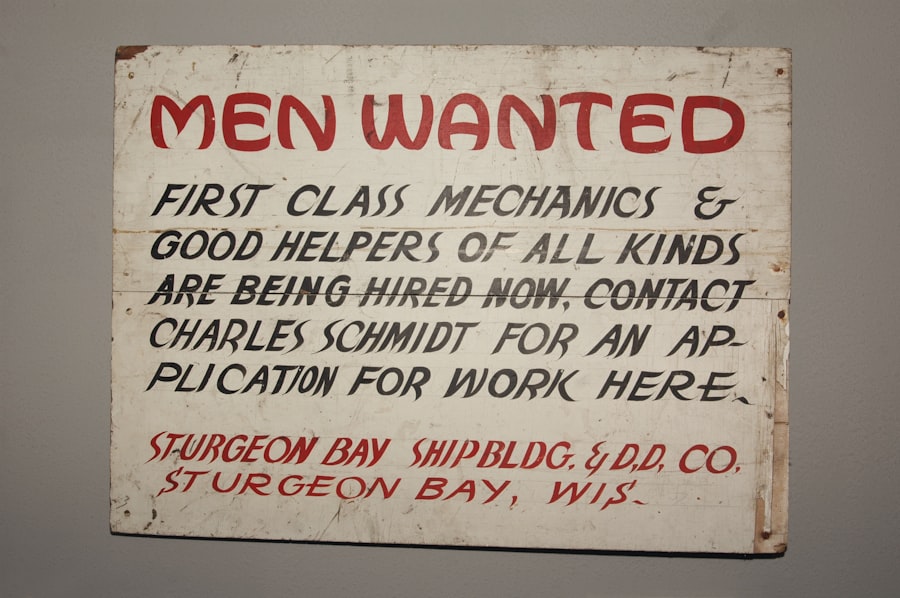The retail industry serves as a vital component of the global economy, encompassing a wide array of businesses that sell goods and services directly to consumers. This sector includes everything from small, family-owned shops to large multinational corporations, each contributing to the overall landscape of commerce. Retail is not merely about transactions; it involves understanding consumer behavior, managing inventory, and creating an engaging shopping experience.
The industry is characterized by its dynamic nature, influenced by trends in technology, consumer preferences, and economic conditions. For instance, the rise of e-commerce has transformed traditional retail models, compelling brick-and-mortar stores to adapt or risk obsolescence. In recent years, the retail landscape has also been shaped by the increasing importance of sustainability and ethical practices.
Consumers are becoming more conscious of where their products come from and how they are made, prompting retailers to adopt more transparent supply chains and eco-friendly practices. This shift has led to the emergence of niche markets focused on organic products, fair trade goods, and sustainable fashion. Additionally, the integration of technology in retail operations—such as point-of-sale systems, inventory management software, and customer relationship management tools—has streamlined processes and enhanced customer engagement.
Understanding these trends is crucial for anyone looking to enter or advance within the retail sector.
Key Takeaways
- The retail industry encompasses a wide range of businesses that sell goods and services to consumers.
- Retail job opportunities can include positions in sales, customer service, management, marketing, and more.
- When looking for retail jobs near you, consider visiting local stores, shopping centers, and malls to inquire about job openings.
- Online job boards and websites can be valuable resources for finding retail job listings and submitting applications.
- Networking with local retailers and industry professionals can help you learn about job opportunities and make valuable connections for your retail career.
Exploring Retail Job Opportunities
Entry-Level Roles: A Gateway to the Industry
Entry-level roles such as sales associates or cashiers provide a gateway into the industry, allowing individuals to gain valuable experience while developing essential skills like communication and problem-solving. These positions often serve as stepping stones to more advanced roles, such as department managers or store supervisors, where individuals can take on greater responsibilities and leadership roles.
Specialized Roles in Retail
Moreover, specialized roles are also available within retail that focus on specific areas such as visual merchandising, loss prevention, and supply chain management. For example, visual merchandisers play a crucial role in creating appealing displays that attract customers and drive sales. They utilize their creativity and understanding of consumer psychology to design store layouts that enhance the shopping experience.
A Career Path for Everyone
On the other hand, loss prevention specialists focus on minimizing theft and fraud within retail environments, employing strategies that protect company assets while ensuring a safe shopping experience for customers. The variety of roles available in retail means that there is likely a position suited to almost any skill set or career aspiration.
Tips for Finding Retail Jobs Near You

Finding retail jobs in your local area can be a straightforward process if approached strategically. One effective method is to create a targeted job search plan that includes identifying specific retailers you are interested in working for. Start by researching local stores, shopping centers, and malls to compile a list of potential employers.
Once you have identified these businesses, visit their websites to check for job openings or career pages that list current vacancies. Many retailers also post job listings on their social media platforms, making it beneficial to follow them for updates. Another useful tip is to leverage community resources such as job fairs and local employment agencies.
Job fairs often feature multiple retailers looking to hire staff, providing an excellent opportunity to meet potential employers face-to-face. Additionally, local employment agencies can assist in matching your skills with available positions in the retail sector. Networking within your community can also yield valuable leads; speaking with friends or acquaintances who work in retail may uncover unadvertised job openings or provide insights into the hiring process at specific companies.
Utilizing Online Job Boards and Websites
| Website | Number of Job Postings | Number of Applicants | Success Rate |
|---|---|---|---|
| Indeed | 500 | 1000 | 50% |
| 300 | 800 | 40% | |
| Monster | 400 | 600 | 60% |
In today’s digital age, online job boards and websites have become indispensable tools for job seekers in the retail industry. Platforms such as Indeed, Glassdoor, and LinkedIn offer extensive listings of available positions across various retailers. These sites allow users to filter job searches by location, job type, and even salary range, making it easier to find opportunities that align with individual preferences and qualifications.
Additionally, many retailers have their own career portals where applicants can apply directly for open positions. When using online job boards, it is essential to tailor your resume and cover letter for each application. Highlighting relevant experience and skills that match the job description can significantly increase your chances of being noticed by hiring managers.
Furthermore, setting up job alerts on these platforms can keep you informed about new postings that match your criteria, ensuring you don’t miss out on potential opportunities. Engaging with online communities related to retail careers can also provide insights into industry trends and job openings that may not be widely advertised.
Networking and Connecting with Local Retailers
Networking plays a crucial role in securing a job in the retail industry. Building relationships with local retailers can open doors to opportunities that may not be publicly advertised. Attend local business events or community gatherings where you can meet store owners and managers in person.
Engaging in conversations about their businesses can demonstrate your interest and enthusiasm for working in retail while allowing you to learn more about their hiring needs. Additionally, consider joining professional organizations related to retail or participating in local chambers of commerce. These groups often host networking events that connect job seekers with industry professionals.
Volunteering for community events or initiatives can also provide networking opportunities while showcasing your commitment to the local area. By establishing connections within the retail community, you may gain valuable referrals or insider information about upcoming job openings.
Preparing for Retail Job Interviews

Researching the Retailer
Understanding the specific retailer’s brand values, target market, and product offerings is crucial before stepping into an interview room. Researching recent news about the company can provide valuable talking points that demonstrate your genuine interest in the position.
Standing Out from the Competition
Mentioning recent developments, such as a new product line or sustainability initiative, during your interview can set you apart from other candidates. This shows that you have taken the time to learn about the company and are genuinely interested in the role.
Practicing and Preparing
Practicing common interview questions specific to retail can help you articulate your thoughts clearly during the actual interview.
Additionally, preparing thoughtful questions to ask the interviewer shows your engagement and interest in the role while providing valuable insights into the company culture.
Navigating the Application Process
The application process for retail jobs typically involves submitting a resume and cover letter through an online portal or directly at the store location. It is crucial to ensure that both documents are polished and tailored specifically for the position you are applying for. Highlighting relevant experience—such as previous retail work or customer service roles—can make your application stand out.
Including quantifiable achievements, such as sales targets met or customer satisfaction ratings improved, can further demonstrate your capabilities. After submitting your application, it is advisable to follow up with the retailer within a week or two. A polite email or phone call expressing your continued interest in the position can reinforce your enthusiasm and keep you on the radar of hiring managers.
If you receive an interview invitation, be sure to confirm your attendance promptly and prepare accordingly by reviewing potential interview questions and practicing your responses.
Advancing Your Career in the Retail Industry
Advancing within the retail industry requires a combination of skill development, networking, and strategic career planning. Once you secure a position, actively seek opportunities for professional growth by taking on additional responsibilities or volunteering for special projects within your store or organization. Many retailers offer training programs designed to enhance employee skills in areas such as leadership, sales techniques, and customer service excellence.
Networking remains essential even after securing a position; building relationships with colleagues across different departments can provide insights into potential career paths within the company. Consider seeking mentorship from experienced professionals who can offer guidance on navigating career advancement opportunities. Additionally, pursuing further education or certifications related to retail management or marketing can enhance your qualifications and make you a more competitive candidate for promotions within the industry.
By understanding the intricacies of the retail sector and actively engaging in professional development opportunities, individuals can carve out successful careers in this ever-evolving field. The combination of practical experience gained through entry-level positions and strategic networking efforts can lead to fulfilling roles that align with personal career aspirations while contributing positively to the broader retail landscape.
If you are interested in exploring the intersection of technology and retail jobs near you, you may want to check out this article on Understanding Math AI: A Comprehensive Guide. This comprehensive guide delves into how artificial intelligence is transforming various industries, including retail, and how a solid understanding of mathematics is crucial for navigating this evolving landscape.
FAQs
What are retail jobs?
Retail jobs are positions within the retail industry that involve selling products or services to customers. These jobs can include positions such as sales associates, cashiers, store managers, and more.
What are some common responsibilities in retail jobs?
Common responsibilities in retail jobs include assisting customers, processing transactions, restocking merchandise, maintaining store cleanliness, and providing excellent customer service.
What are the typical work hours for retail jobs?
The work hours for retail jobs can vary, but they often include evenings, weekends, and holidays to accommodate the needs of customers. Part-time and full-time positions are available.
What skills are important for retail jobs?
Important skills for retail jobs include strong communication and interpersonal skills, the ability to work in a fast-paced environment, customer service skills, and the ability to work as part of a team.
Where can I find retail jobs near me?
You can find retail jobs near you by searching on job search websites, visiting local stores and inquiring about job openings, or contacting staffing agencies that specialize in retail placements.























+ There are no comments
Add yours